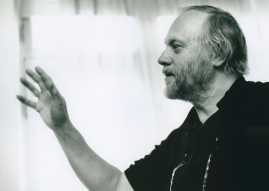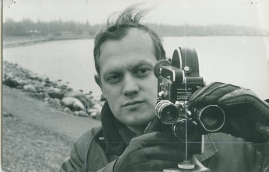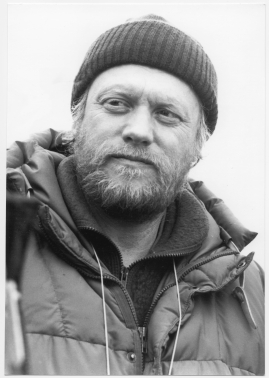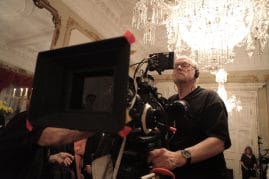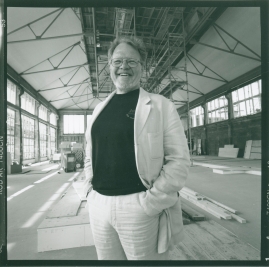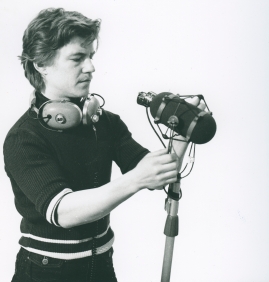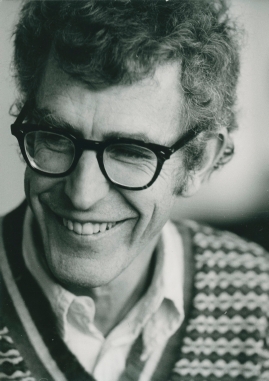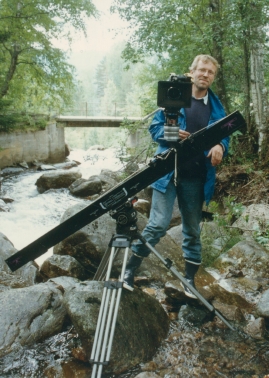Jan Troell
Table of contents
- Basic facts
- Links and resources
- Biography
- Awards
- Films
- Original work
- Soundtrack listing
- Groups
Basic facts
Media (4)
| Director | |
|---|---|
| Director of Photography | |
| Show all films | |
| Awards |
|
Biography
Jan Troell was born in Limhamn, Sweden. He is one of Sweden's most internationally established and well-known directors and has among other things received Oscar nominations for best director and best screenplay for his film The Emigrants (1971).-Jan Troell made his name in the 1960s, when Swedish cinema had become for the most part politicised. Troell, however, ploughed his own furrow, with an eye for romantic subject matter even when he was depicting harsh living conditions.Troell has been the cameraman for most of his own films, and his...
Links and resources
Biography
Jan Troell was born in Limhamn, Sweden. He is one of Sweden's most internationally established and well-known directors and has among other things received Oscar nominations for best director and best screenplay for his film The Emigrants (1971).
-
Jan Troell made his name in the 1960s, when Swedish cinema had become for the most part politicised. Troell, however, ploughed his own furrow, with an eye for romantic subject matter even when he was depicting harsh living conditions.
Troell has been the cameraman for most of his own films, and his interest in photography and film began back in his early teenage years. He trained as a teacher but made short films in his spare time, many of which were broadcast on television. Having made the short film Pojken och draken ('The Boy and the Kite,' 1962) together with Bo Widerberg, Troell got his first professional feature film job as the cinematographer for Widerberg's Barnvagnen ('The Pram,' 1963). In 1966 he made his own debut as a feature film director with an adaptation of a novel by Eyvind Johnson Here’s Your Life (Här har du ditt liv). Almost three hours in length, the film is one of the most competent and assured debuts in all of Swedish cinema. Some years later his epics The Emigrants (Utvandrarna, 1971) and The New Land (Nybyggarna, 1972), based on the series of novels by Vilhelm Moberg, enjoyed a level of success rare among Swedish films, not least because they were serialised for television.
Critical reception of these two films was rather cool, however, partly because Troell appeared out of synch with the times. As a filmmaker he was an observer rather than a campaigner. His films always have the feel of the teenager bitten by the photography bug who, now advanced in years, is still fascinated by the camera's possibilities.
The Emigrants gained Troell five Oscar nominations, after which the director made two films in the US, Zandy's Bride (1974) and Hurricane (1979).
In two of his films, Who Saw Him Die? (Ole dole doff, 1968) and Bang! (1977), Troell has taken as his subjects contemporary men of his own age, but in general he seems more at home when recreating history. The Flight of the Eagle (Ingenjör Andrées luftfärd, 1982), Hamsun (1996) and Everlasting Moments (Maria Larssons eviga ögonblick, 2008) all tell real life stories from the past. Yet since the end of the 1980s Troell has also concerned himself with contemporary issues. His documentary film Land of Dreams (Sagolandet, 1988), an attack on the technocratic view of society, enjoyed a long run in cinemas and was the subject of much discussion. Troell himself has said that the 1986 Chernobyl nuclear disaster, coupled with the fact that he became a father in 1983, made him more inclined to comment on current affairs. In 1991 he made Il Capitano, a film about a particularly brutal 1988 triple murder committed in the Swedish province of Västerbotten. One of the most controversial Swedish film projects of the 1990s, it provoked considerable public indignation.
In purely physical terms Troell has continued to shut himself away in his home in a small village on the south coast of Sweden where he edits his own films. He likes to take spontaneously captured images from his own garden or immediate environment and use them in a feature, a documentary or one of the short films he is so fond of making. Troell often involves his own family in his filmmaking: Everlasting Moments is based on a piece of history from the family of his wife, the writer Agneta Ulfsäter-Troell. His daughter Yohanna can be seen in several of his films, and she has also documented her father's work in her own film Troell bakom kameran ('Troell Behind the Camera', 2009).
Mårten Blomkvist (2011)
(translated by Derek Jones)
Awards
| Festival Award | Vlissingen | 2014 | Lifetime Achievment Award, Film By the Sea, Nederländerna | ||
|---|---|---|---|---|---|
| Nominated for the Guldbagge Award | Stockholm | 2013 | Best Director | ||
| Stockholm | 2013 | Best Cinematography | |||
| Festival Award | Stockholm | 2012 | Stockholm Lifetime Achievement Award | ||
| Stockholm | 2012 | Stockholm Lifetime Achievement Award | |||
| Montreal | 2012 | (bästa regi / Best Director, The World Film Festival, Montreal, Kanada) | |||
| Prize | Stockholm | 2010 | (Svenska Akademiens Kungliga pris; 40.000 kr ur kung Carl Gustafs egna medel) | ||
| Festival Award | Gothenburg | 2009 | (Göteborgs stora filmpris. Priset är 50 000 kr och delas ut av Göteborg Film Festival i samarbetet med Göteborg & Co, näringslivsenheten) | ||
| Minsk | 2009 | (specialpris för bästa foto/special award for best cinematography vid Listapad filmfestival, Minsk, Vitryssland) | |||
| Minsk | 2009 | (pris för bästa regi/best director vid Listapad filmfestival, Minsk, Vitryssland) | |||
| Nominated for the Guldbagge Award | Stockholm | 2009 | Best Director | ||
| Stockholm | 2009 | Best Screenplay | |||
| SFF's Glas Statuette (Sweden) | Stockholm | 2009 | |||
| Nominated for the Guldbagge Award | Stockholm | 2009 | Best Cinematography | ||
| Festival Award | Valladolid | 2008 | (bästa foto/best cinematography) | ||
| Nominated for the Guldbagge Award | Gothenburg | 2002 | Best Screenplay | ||
| The Guldbagge Award | Gothenburg | 2002 | Best Director | ||
| Gothenburg | 2002 | Best Cinematography | |||
| Festival Award | Sevilla | 2001 | (bästa regi) | ||
| Prize | Landskrona | 2001 | (Region Skånes kulturpris) | ||
| Stockholm | 1998 | (TV4:s och Nils Petter Sundgrens pris Guldsolen; filmen "förnyar den poetiska dokumentärfilmen") | |||
| Malmö | 1998 | (Malmö stads kulturpris; 80.000 kr) | |||
| Festival Award | Montreal | 1996 | (Special Grand Prix of Americas) | ||
| Best Cinematography | Gothenburg | 1995 | (sällskapet Manetens pris till Årets filmfotograf) | ||
| Festival Award | Brügge | 1993 | (bästa regi) | ||
| Nominated for the Guldbagge Award | Stockholm | 1992 | Best Cinematography | ||
| Silberner Bär | Berlin | 1992 | (bästa regi) | ||
| The Guldbagge Award | Stockholm | 1989 | Creative Achievement | ||
| Chaplin Magazine Award | Stockholm | 1982 | (tog inte emot) | ||
| Prize | Malmö | 1973 | (SDS:s kulturpris) | ||
| Academy Award Nomination | Los Angeles | 1973 | (bästa manus 1972/Best Writing, Screenplay Based on Material from Another Medium 1972) | ||
| Los Angeles | 1973 | (bästa regi 1972/Best Director 1972) | |||
| Chaplin Magazine Award | Stockholm | 1972 | |||
| International Writers' Guild | Berlin | 1968 | (bästa manus, t.m. L'homme qui ment) | ||
| Prize | Stockholm | 1967 | (LO-stipendium) | ||
| Silver Hugo | Chicago | 1967 | (bästa regi) | ||
| The Guldbagge Award | Stockholm | 1967 | Best Director | ||
| Prize | Stockholm | 1967 | (Edvin Adolphsons stipendium) | ||
| Stockholm | 1967 | (SF-stipendium) | |||
| Chaplin Magazine Award | Stockholm | 1966 | |||
| Stockholm | 1966 |
